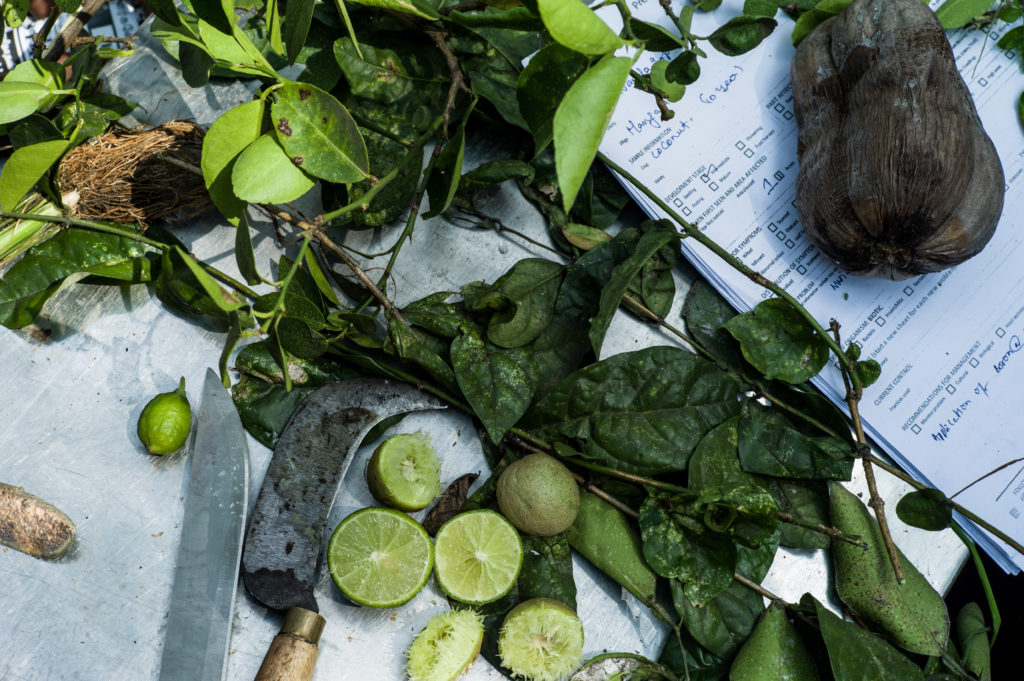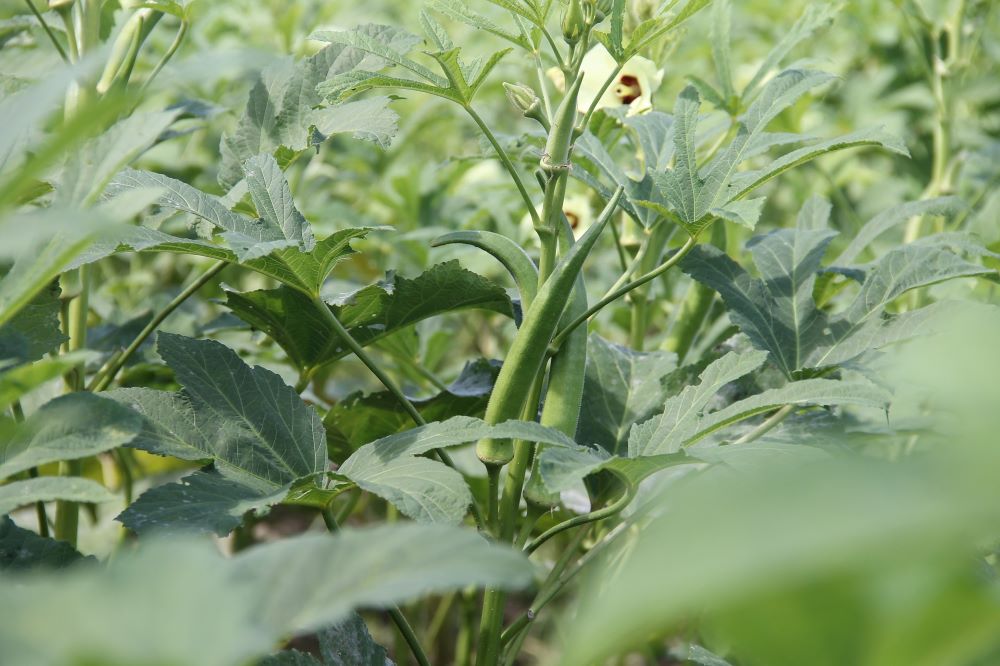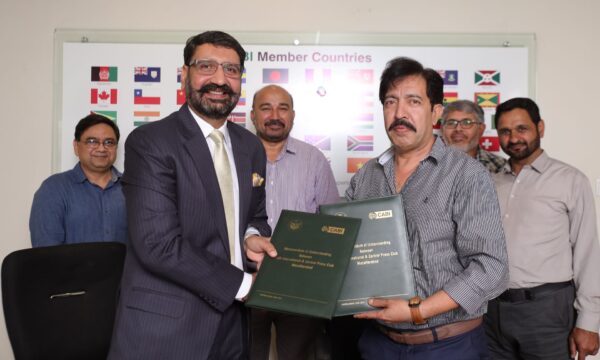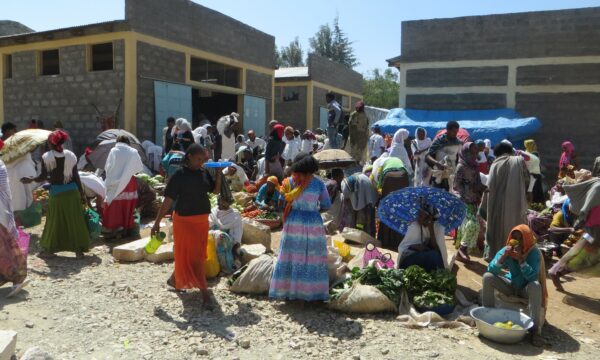The increase in devastating crop pests, such as the fall armyworm and tomato pinworm, has led to a growth in pesticide use among smallholder farmers. The lack of product knowledge and safety awareness means there is a widespread tendency not to adhere to safety precautions.

Pesticide side effects
Frequent use of synthetic pesticides, combined with limited adherence to safety precautions, can have serious implications on the environment, and human and animal health. One serious consequence of improper pesticide use is toxic chemical residue on crops, which can result in pesticides entering the food chain.
However, when farmers’ harvests in Jammu, India, were recently threatened by a leafhopper outbreak, Plantwise plant doctors proved that safer, more sustainable ways to manage crop pests are just as effective as chemical alternatives.
Leafhopper
The leafhopper is a small insect, similar in size to a sesame grain. There are many species of leafhopper, feeding on a wide range of plants and crops. Typically, they suck sap from leaves, which become yellow and curl down at the edges, ultimately weakening the plant and limiting yields.
The okra farmers in Jammu noticed characteristic leafhopper burn symptoms on their crops. Like many farmers faced with a threat to their harvest and livelihood, they turned to chemical pesticides.
Pesticide resistance
However, not only can pesticides prove hazardous if not used correctly, over time crop pests can develop resistance, meaning chemicals are less effective at fighting outbreaks. As an endemic pest in Jammu, this wasn’t the first time pesticides had been used to tackle leafhoppers, and the farmers were having a tough time controlling the outbreak.
Fortunately, the farmers were able to visit a Plantwise plant clinic, to seek advice on how to manage the hopper outbreak. Plant doctor, Arun Khajuria, advised the farmers to use integrated pest management (IPM) techniques.
IPM aims to reduce reliance on pesticides by encouraging the use of a combination of sustainable pest control practices. Methods include careful use of pesticides, as well as non-chemical pest management practices, such as intensive monitoring, resistant varieties, cultural control, physical or mechanical control and biological control.
Integrated pest management

The plant doctors in Jammu advised the farmers to try a number of IPM techniques. These included increasing weeding to avoid a buildup of co-hosts, utilizing sticky pest traps to monitor hopper numbers, and spraying with a prophylactic, which acts as a sanitizer. The plant doctors also recommended applying a WHO class U pesticide and following up with a Neem spray, if hopper numbers increased.
As a result of using IPM to manage the leafhoppers, the farmers were able to maintain the pest population below economic injury levels (EIL). Harvest levels were good and the farmers reported no economic losses. What’s more, by not using hazardous chemicals, the farmers minimized the risk of pesticide contamination and alleviated food safety concerns.
Sustainable farming methods
By emphasizing pest monitoring and prevention options before direct control measures, Plantwise plant doctors aim to help farmers adopt safer and more sustainable farming methods.
At the core of IPM is allowing farmers to select crop practices — including pruning, using insect traps to monitor pest spread, biocontrol, the application of bio-pesticides, and more — that are most appropriate for their social, economic, and environmental conditions.
Plantwise
Since its launch in 2011, CABI’s Plantwise programme has been introduced to 34 countries in Africa, Asia and the Americas. The has been to increase food security and improve rural livelihoods by reducing crop losses. This has been achieved by establishing sustainable networks of local plant clinics, run by trained plant doctors, where farmers receive practical plant health advice.
Working in close partnership with over 170 in-country partners, Plantwise has strengthened national plant health systems from within, enabling countries to provide farmers with the knowledge they need to lose less of what they grow.
PlantwisePlus
CABI’s new global programme, PlantwisePlus will support low and lower-middle income countries to predict, prepare themselves for and prevent plant health threats in a changing climate – reducing crop losses and empowering farmers to increase income, food security and food safety by producing more and higher quality food.
Building on lessons learned from Plantwise and Action on Invasives over the past 10 years, this new CABI-led global programme responds to three inter-related challenges: (1) There is no consistent or coordinated mechanism to detect, identify and respond to plant health problems; (2) Public and private actors providing extension services to smallholder farmers have insufficient capacity to diagnose crop health problems and recommend sustainable solutions; and (3) Inappropriate pesticide use, including the application of highly toxic products, is still widespread and farmers, advisory service providers and consumers do not recognise the impacts on health and the natural resources that agriculture relies on.
PlantwisePlus will therefore focus on (a) strengthening detection of and response to pest outbreaks; (b) providing public and private agricultural service providers with better digital advisory tools to support farmers in sustainable crop management; (c) enhancing the availability of nature-positive and low-risk plant protection products to reduce reliance on high-risk farm inputs; (d) increasing consumer demand for and supply to local markets of safer, higher quality and locally produced food.
Further reading
Plantwise Knowledge Bank
An open-access gateway to actionable plant health information and services – from diagnostic and management advice to maps of pest locations and customized pest news alerts. https://www.plantwise.org/KnowledgeBank
Invasive Species Compendium
The compendium provides detailed coverage of invasive species threatening livelihoods and the environment worldwide. https://www.cabi.org/isc
Related News & Blogs
Using biocontrol-based integrated pest management to reduce pollinator loss
Pollinators, such as bees, bumblebees, butterflies, and some flies, play a crucial role in agricultural ecosystems by facilitating the reproduction of about 80% of our crops. Pollinators assure at least 30% of human’s food production. However, their po…
9 April 2025




